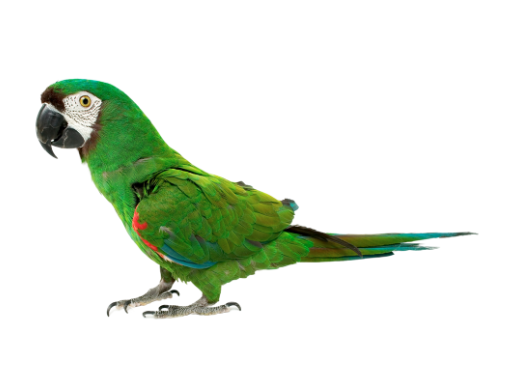Should I get my bird ringed or microchipped? John Hayward, who runs the National Theft Register, recommends you do both.
During the warmer summer months when people are likely to have their windows open, there is often an increase in the number of lost and found birds reported. However, birds can be lost at any time of the year.
There is never a better time than now to consider beefing up your bird’s security arrangements, which include means of identification.
It is very distressing to lose a bird. But many owners are reunited with their pets, especially when there is proof of ownership.
There are three main systems of identification: closed rings, which are fitted to young chicks, usually by the breeder; split rings fitted to fully grown birds; and microchipping. John Hayward advocates that all bird breeders, especially those for parrots, ensure birds are microchipped and registered, before selling to a new owner.
If your bird has not been microchipped by its breeder it is important that you consider getting it done. Owners of cats and dogs routinely have their pets microchipped, so why not show the same diligence for birds?
Many lost and found birds carry rings but often owners do not have a record of the inscription details. Furthermore, thieves can sometimes remove rings. John advises that he has never encountered a thief who has tried to remove a chip. Chips add that additional layer of security.
Parrot passport
You should record the details of the ring and microchip number of your bird in the Pet Parrot Passport a document produced together with the Parrot Society. You should then store the passport securely.
The passport will be invaluable in helping to identify your pet if it is lost or stolen.
Often lost birds can fall into the wrong hands and disputes regarding ownership are major obstacles. It can often be difficult for police to obtain search warrants if the bird is not identifiable. By microchipping your bird you have a permanent record of ownership, invaluable for evidential purposes.
For smaller species of birds and other animals, the mini-microchip, endorsed by DEFRA and supported by avian vets, is now available.
Proof of ownership
John offers advice to pet owners who are considering a move abroad with their pet. Foreign authorities often demand proof of origin and ownership. He advises that closed rings and chips accompanied by birth or hatch certificates are invaluable in this situation.
Additionally, owners may consider the advantages of pet insurance for parrots, which, among the various services provided, offers the opportunity to have your pet logged and recorded. Parrot insurance from ExoticDirect includes 28 days of cover within the EU, be sure to check your policy documents for more information about taking your bird abroad.
Why not click here to get a quote? Get a quote
Alternatively you can call us on 0345 982 5505
The majority of pet birds are treasured companions and we have a duty of care as to their wellbeing. If we can do it for dogs, why not consider microchipping our birds as well?
Microchipping isn’t always an optional choice. The regulations make it clear that “A species must be microchipped or have identifiable closed rings for the supply of Article 10 licences prior to entering them into trade.”
As part of responsible pet ownership, John Hayward advises that you should microchip your birds as a matter of course.
John can also offer advice about the supply of rings and details of specialist avian vets if required.
John Hayward, National Theft Register
You can contact John Hayward about this article or to register a lost parrot on 01869 325699 or jh@ntr.supanet.com
ExoticDirect are working with Tracer Advance a company that produces the Tracer microchips in order to communicate the importance of responsible pet ownership. Click here for more information.
Please note: ExoticDirect policies do not cover the cost of microchipping or ringing.
Own a cat or dog? Get pet insurance that covers up to £12,000 for dogs and £9,000 for cats in vet fees every year, including dental for illness and accidents with British Pet Insurance.

